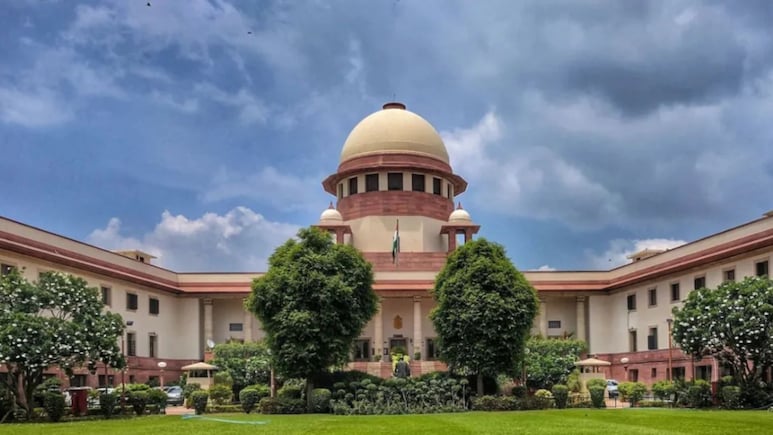
- Supreme Court will not overturn its April 12 order giving deadlines to Presidents, Governors to clear bills
- The court heard a Presidential reference on the legality of its earlier verdict involving Tamil Nadu Governor
- The judges said they would act only in an advisory role under Article 143, not as an appellate court
The Supreme Court will not set aside its April 12 order - which imposed deadlines on President Droupadi Murmu and Governors to clear bills passed by states - a Constitution bench led by Chief Justice BR Gavai said on Tuesday. The bench was hearing a Presidential reference seeking advice on whether the verdict is correct in law.
The Chief Justice said the court would only act in an "advisory" role and not sit in appeal over the case involving Tamil Nadu's ruling DMK and Governor RN Ravi over consent withheld for a batch of 10 bills. A Presidential reference is not a challenge to the earlier verdict, so the court can only speak in an advisory role.
In its April 12 verdict the top court said Governor Ravi's actions in that regard were "illegal" and "arbitrary", and that he should have signed off after the bills were presented a second time.
"We will just be expressing a view of the law... and not make a decision on the Tamil Nadu case," the court observed in response to preliminary objections on the maintainability of the reference.
"We are in an advisory jurisdiction... we are not in appellate. In Article 143 (which gives the President power to consult the Supreme Court on legal matters of public importance) hearing the court can render an opinion... but it cannot overrule the judgment," Justice Surya Kant said.
The five-judge bench, which also includes Justice Vikram Nath, Justice PS Narasimha, and Justice A Chandurkar, began by hearing preliminary objections from senior advocate KK Venugopal (appearing for Kerala) and senior advocate Abhishek Singhvi (for Tamil Nadu).
They argued the 14 questions raised in President Droupadi Murmu's reference were substantially and directly answered by the verdict of a two-judge bench in the Tamil Nadu case.
The President, they argued, cannot invoke advisory jurisdiction, under Article 143, to revisit issues already decided. Mr Venugopal said a judgement authored by any bench of the Supreme Court is binding on all, and, referencing earlier cases, like the 2G corruption scam, said "The court is being asked to sit on judgements already decided... this is wholly outside Article 143."
He also argued a presidential reference was, in fact, a move by the federal government since the President is bound to act per the 'aid and advice' of the Council of Ministers.
This, he said, is an attempt by the Government of India to derail a judgement without filing a review.
His colleague, Mr Singhvi, argued similarly, and said Article 143 could neither be used as an intra-court appeal nor a substitute for review or curative powers.
READ | "Are You Serious?" Top Court Asks Kerala Over Presidential Reference
These arguments came primarily as responses to questions by the court on the part of the Constitution that says constitutional benches should answer constitutional questions.
The Chief Justice had asked Mr Venugopal about questions of 'substantial importance to the Constitution', which must be decided by a Constitution bench of no less than five judges.
He pointed out the judgments cited by Mr Venugopal - in cases pertaining to the Punjab, Telangana, and Tamil Nadu governors - had been delivered by five-judge benches.
At this point Attorney General R Venkataramani said he had specifically raised the plea for a larger bench in reference to the Tamil Nadu case. However, both he and Solicitor General Tushar Mehta argued the court could, in fact, revisit or alter earlier judgments in Article 143 cases.
Mr Mehta described the barrier argued earlier as a 'self-imposed restriction', since the Supreme Court has the power to overrule previous judgments, and it is not part of any appellate power.
The court will resume its hearing tomorrow.
NDTV is now available on WhatsApp channels. Click on the link to get all the latest updates from NDTV on your chat.
Track Latest News Live on NDTV.com and get news updates from India and around the world

